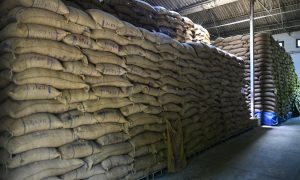U.S.-India Trade Deal Stalls Over Farm Imports and Ethanol Dispute

Efforts to finalize a U.S.-India trade deal before President Trump’s July 9 deadline are stalled over agricultural and dairy issues. The U.S. seeks broader access for farm goods, while India resists imports of GM crops and dairy due to political and economic concerns. Ethanol imports are also opposed, threatening India’s fuel self-sufficiency and farmer-focused ethanol program.
Efforts to finalize a U.S.-India trade agreement ahead of President Donald Trump’s July 9 deadline are facing a significant hurdle, with both sides still at odds over key agricultural and dairy issues. While negotiators have made progress on tariff reductions, American demands for broader farm market access remain a sticking point.
The United States is lobbying for India to open its markets to a wide array of American goods, including dairy, poultry, corn, soybeans, wheat, rice, ethanol, and processed food items such as chocolates, cookies, and frozen French fries. India, however, is only open to increased access for certain products like U.S. dry fruits and apples. Imports of genetically modified corn and soybeans, as well as dairy products, remain off the table due to regulatory, cultural, and health concerns.
India’s resistance is rooted in both economics and politics. Agriculture accounts for just 16% of India’s GDP but supports nearly half of its 1.4 billion people. Indian farmers, a politically influential group, have historically pushed back against foreign competition. Prime Minister Narendra Modi’s government learned this firsthand during widespread protests against agricultural reforms in 2021, which eventually led to the rollback of the proposed farm laws.
There’s also a vast structural gap between farming in both countries. The average U.S. farm is around 187 hectares compared to just 1.08 hectares in India. U.S. dairy operations typically involve hundreds of cattle, while Indian farmers tend to just two or three. These disparities make fair competition nearly impossible for Indian producers, who rely on traditional, low-tech methods.
Additionally, New Delhi is firmly opposing American efforts to export ethanol to India. The country’s Ethanol Blended Petrol (EBP) program aims to reduce dependency on fuel imports and support domestic farmers by using surplus rice, sugarcane, and corn to produce ethanol. Allowing U.S. ethanol would not only undermine that goal but also threaten recent investments in India’s rapidly growing distillery sector.
As the clock ticks down, trade negotiators face pressure to strike a balance between strategic partnership and protecting domestic livelihoods. Without a breakthrough, the reimposition of reciprocal U.S. tariffs—currently paused—could complicate ties further.
To Read more about Ethanol Industry & Bio Energy News, continue reading Agriinsite.com
Source : Weekly Voice















